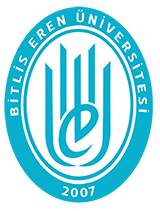| dc.description.abstract | Chemical drugs (pesticides) that are xenobiotic to the nature of agricultural agro-ecosystems affect the target organism and non-target factors. The efficiency and reliability of agricultural areas are important not only for living creatures in the environment, but also for community. This study was carried out to determine the effects of Demond EC 2.5 (insecticide), Granland DF (herbicide) and Safacol 70 WP (fungicide) pesticides, which are widely used in the agricultural areas of Muş, on the development of nontarget wheat plant, free-living nematodes, microfungi and aerobic mesophilic bacteria communities. The study was performed in three replicates in the variance analysis method for repeated measurements in laboratory conditions. Pesticides were applied by spraying to the pots including one kg of soil as recommended and upper doses, respectively, with the help of an injector. Repeated Measurement ANOVA and Profile Analysis Technique were used in the comparison of treatments in terms of nematode, bacteria and microfungi numbers (before-after), and the Analysis of Means (ANOM) Technique in comparing treatments in terms of plant parameters. As a result of the experiments; While the effect of only periods is important for the bacteria combination (P=0.001); for the microfungi community, both period (P=0.004) and Period × Treatment interaction were found significant (P=0.050). Periodic × Treatment interaction was statistically significant for plant-parasitic, omnivore-predator, bacterivore and total nematodes respectively (P=0.002; P=0.004; P=0.001; P=0.000). As a result; the pesticides used had more or less positive effects on the microfungi community, while they had a negative effect on the bacteria community; According to trophic levels, soil nematodes and plant parameters were found to have a positive / negative effect. It is thought that pesticides should be used in the last resort and recommended dosage, without forgetting that the soil is complex and all living things share this environment. | tr_TR |














